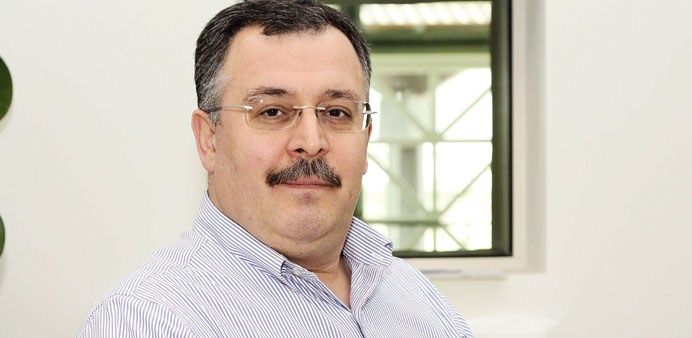Dr Muammer Koç: professor of sustainability
By Joseph Varghese/Staff Reporter
Qatar has an edge in developing and implementing green and clean policies and will be able to diversify its energy resources if the renewable options are tapped effectively.
“Renewable energy, particularly solar, is an excellent opportunity for Qatar,” Dr Muammer Koç, professor of sustainability, Hamad Bin Khalifa University (HBKU), told Gulf Times.
“Developing solar technology involves overcoming some challenges such as coping with dust, low efficiency, storage and connecting to the grid. But, if thought through and planned carefully, solar technology will help Qatar diversify its energy resource and reduce its dependence on oil and gas.”
Proper utilisation of solar energy will contribute to the diversification of Qatar’s economic development, enhance its labour base with extensive skills and generate a local manufacturing industry for further, long-term economic and social benefits.
“Qatar is in an advantageous situation when it comes to developing and implementing green and clean policies due to its small population size and high purchasing power of individuals", the academic asserted.
The continued promotion of energy-efficient technologies and practices within buildings and the extensive use of solar power in industry and residences can help diversify Qatar’s economy by initiating a clean tech-based manufacturing industry and also directly enhance local human capital development.
Emphasising that Qatar is taking the proactive approach, Dr Koç noted that the country had been “rightly making plans for a sustainable future and development that balances diversified and long-term economic development with growth in social and human capital and the environment”.
Observing that Qatar’s dependence on natural resources makes it vulnerable to international economic and geopolitical changes, the academic maintained that the challenge before the country is to implement its grand vision efficiently, effectively and rapidly.
“This process of implementation itself will gain Qatar the needed capacity, capability and tools for long-term sustainability and resilience both socially and economically. I am quite impressed by the acceptance and ownership of this vision among young Qataris, and their will to implement it.”
Dr Koc felt that by launching sustainability-focused graduate programmes within its College of Science and Engineering, HBKU aims to prepare talented human capital towards the long-term sustainable development and knowledge economy objectives of Qatar and harness strong interest among young people in growing their scientific knowledge and to develop future champions of sustainability.
He stated that HBKU’s MS and PhD degree programmes in sustainable energy and environment are all open to newly-graduated or experienced people with BS degrees in science, engineering, economics, business, policy and other social sciences. Both programmes will start in Fall 2015.

